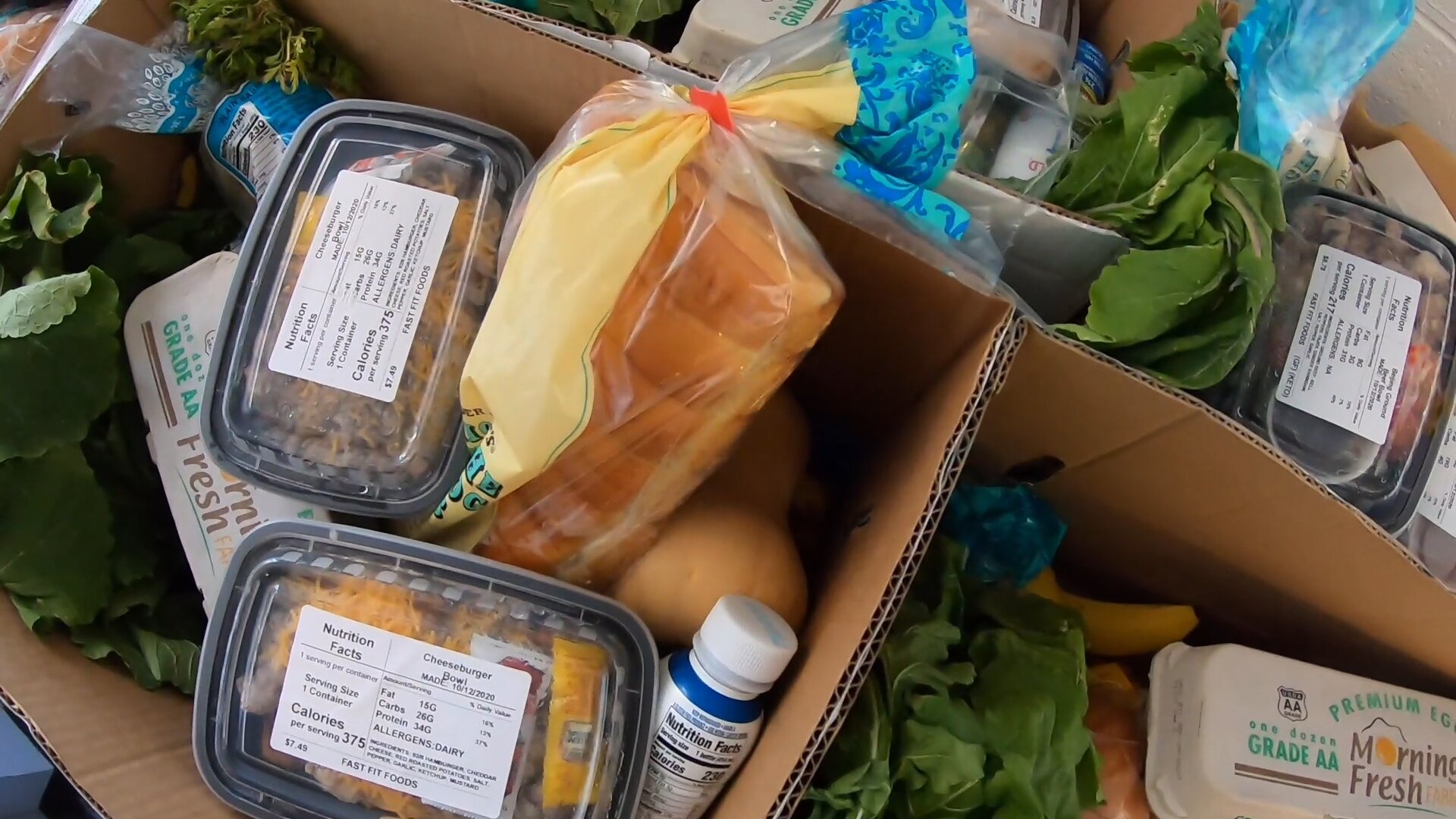Colorado Springs Food Rescue nonprofit provides surplus food to families in need

“Food justice and getting food to people has never been more important.”
Patience Kabwasa would know. She is the Executive Director of Colorado Springs Food Rescue, an organization located in the southeast part of town. Since the start of the COVID-19 pandemic, she has seen the organization’s need change dramatically.
“Pre-pandemic we were partnering with nine community centers, schools, churches, predominantly in the Southeast part of Colorado Springs to redistribute food. Things have changed, overnight. Eight of those programs closed, indefinitely. And we had to really launch into a mutual aid, hunger response team,“ Kabwasa said.
Finding creative ways to share surplus food while building a healthier food system has been the nonprofit’s mission since 2013.
“We have surplus food getting thrown away every single day in this community. And we also have one in six children who are going without food. So, there should be a way to be able to connect those things,” Kabwasa said.
These days, volunteers, staff, and student interns pack boxes with healthy foods donated from grocery stores, farmers markets, and food suppliers across southern Colorado.
The boxes are then given to families at numerous distribution sites, including at the nonprofit’s headquarters at the Helen Hunt Campus in the Hillside neighborhood, a community where access to many grocery stores requires a drive across town.
“7-11 is the grocery store in this community. So when you think about that, and you think about the fresh food that you can access at the counter of 7-11,” Kabwasa points out while also highlighting the transportation issues for many families. “You're having to consider what you bring home on your route, because you are walking or riding the bus to the grocery store; accessing fresh food can be an incredible challenge.”
Each box contains fresh vegetables, fruits, bread, eggs and a variety of surplus food items, sometimes meat from a local distributor.
On a recent Saturday, Josh Rafail and his family, like so many, stopped and received a box of food for the very first time. Due to the pandemic, he needed to feed more family members and was worried it wasn’t sustainable.
Along with eggs, fruits and vegetables, his box also had sourdough bread and bok choy; two items he was looking forward to experimenting with and sharing with his family.

“It feels like a gift… but in such a deeper way because it's not something superficial. It's something that I literally can't live without,” Rafail said.
More than 4,000 boxes have been distributed this year, helping feed more than 9,000 families.
And there is more in store next year. Construction is set to begin in the spring for the new Hillside Hub Neighborhood Center. The plan is for it to be a community space for education, growing fresh food, and composting. The nonprofit wants to invest in the neighborhood and inspire youth to become future food justice leaders.
“Our theory of change is really that food security has three pillars: production, education, and access. The access part is at our neighborhood grocery store, but this is really going to be a center where we can grow food [and] we can start addressing some of the economic drivers of why people are in the free food line in the first place,” Kabwasa said.
They hope to be open and operating from the new space by fall of 2021.
More information on Colorado Springs Food Rescue is available here.